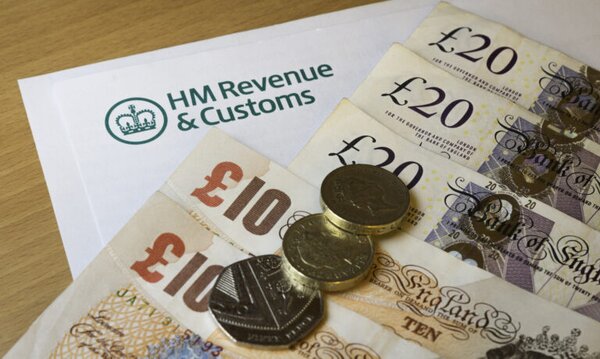Let’s Break This Down Together…
Missing your Self Assessment deadline and feeling panicked? You’re definitely not alone, thousands of people end up a few days late every year and wonder what happens next.
This article explains what to do right away to limit penalties, how HMRC’s fines work, and what counts as a reasonable excuse. You’ll also learn about payment plans, appeals, and how to avoid future trouble.
By the end, you’ll know exactly how to get back on track and keep HMRC off your back. Let’s dive in and sort it all out together!
I've Missed My Deadline By a Few Days – What Should I Do Now?
File your tax return immediately! This is the most important step to prevent further penalties from accumulating. Every day matters when you’re already late.
Pay any tax you owe as soon as possible. If you do not pay your tax bill on time, late payments and late payment penalties will accrue, and interest is charged on any tax bill late. While the £100 late filing penalty is fixed, interest on unpaid tax continues to grow until you’ve paid.
If you can’t pay the full amount, contact HMRC about setting up a payment plan. They’re often willing to arrange manageable instalments if you’re proactive. You can also set up a pay arrangement or a budget payment plan through HMRC if you are unable to pay your tax liability in full. You will need your unique taxpayer reference when contacting HMRC about payments or arrangements.
Gather any evidence that might support a ‘reasonable excuse’ claim. HMRC doesn’t accept many excuses, but genuine emergencies might qualify for an appeal. If you are unable to pay, you should still pay as much money as you can to reduce additional penalties and charged interest.
You need to complete your self assessment tax return and make all necessary payments to avoid further penalties.
Understanding the Penalty System
The £100 immediate penalty is just the beginning if you don’t file quickly. If you continue to miss deadlines, potential penalties can quickly add up, including increasing fines and interest charged by HMRC for late registration, late filing, or late payment of taxes. Here’s how penalties escalate over time.
- After 3 months late (May 1st onwards): £10 daily penalties begin, up to a maximum of £900 over the next 90 days.
- After 6 months late (August 1st): An additional penalty of 5% of the tax due or £300 – whichever is greater.
- After 12 months late (next January 31st): Another 5% or £300 penalty. In serious cases, further penalties could reach up to 100% of tax due.
I once helped a client who’d forgotten about his return until February 3rd. By filing immediately, he avoided all penalties beyond the initial £100 charge.
HMRC may consider appeals or reductions of penalties on a case-by-case basis, taking into account individual circumstances and reasonable excuses.

What Counts as a Reasonable Excuse?
HMRC may cancel penalties if you had a ‘reasonable excuse’ for filing late. The following examples illustrate situations HMRC may accept as valid excuses. These typically include serious circumstances beyond your control.
If you were unable to complete your return due to circumstances beyond your control, such as serious illness, HMRC may consider this a reasonable excuse. Serious illness that prevented you from managing your affairs, especially if it occurred close to the deadline, is generally accepted.
Unexpected hospital stays or bereavements of a close relative are also considered valid reasons by HMRC.
Technical failures of the HMRC online service (not your own computer or internet) may mean you are unable to complete your return on time and may qualify as reasonable excuses.
Fires, floods or natural disasters that affected your ability to complete your return are legitimate grounds for appeal.
Remember that “I forgot” or “I didn’t understand the system” rarely qualify as reasonable excuses with HMRC.
How to Appeal Against Late Filing Penalties
If you believe you have a genuine reasonable excuse, you can appeal against the penalties. If you are unsure about the process, it is advisable to seek professional advice. You must do this within 30 days of receiving the penalty notice.
The easiest way to appeal is online through your HMRC account, and appeals can also be made through HMRC's online services. Alternatively, you can use form SA370 for postal appeals.
Before submitting an appeal, make sure your self assessment tax return has been completed. Include specific details about why you couldn’t file on time and provide evidence where possible. Explain how the issue prevented you from filing promptly.
Be honest in your appeal – HMRC takes a dim view of fabricated excuses. They’ve heard every excuse imaginable and are skilled at spotting untruths.

Payment Plans and Options
If you’re finding it difficult to pay your tax bill in full, don’t panic, HMRC offers several payment plans and options to help you manage your tax more effectively. Setting up a payment plan allows you to pay your tax bill in manageable instalments, helping you avoid additional penalties and interest charges that can quickly add up if your tax remains unpaid.
You can arrange a payment plan online or by calling HMRC directly. Generally, if you owe less than £30,000 in tax and have no other outstanding HMRC debts or payment plans, you’ll be eligible to set up an instalment arrangement. Acting as soon as possible is crucial, as this can prevent further penalties and reduce the amount of interest charged on your outstanding tax.
Another useful option is HMRC’s Budget Payment Plan, which lets you make regular monthly or weekly payments towards your next tax bill. This can help you spread the cost and avoid a large lump sum payment at the end of the tax year.
If you’re struggling to pay your tax, don’t ignore the problem, contact HMRC as soon as you can to discuss your payment options. Taking action early can help you avoid further penalties and keep your finances on track.
Seeking Help and Support
Navigating your self assessment tax return can feel overwhelming, especially if you’re facing a late filing penalty or need to set up a payment plan. Fortunately, there’s plenty of help available to guide you through the process and help you avoid penalties.
You can contact HMRC directly for advice on completing your tax return, understanding your assessment tax return, or arranging a payment plan that suits your circumstances. Their support teams are there to help you resolve issues and answer any questions about your tax obligations.
If you’d prefer expert guidance, consider reaching out to a tax professional or accountant. They can provide tailored advice, help you complete your self assessment tax return accurately, and ensure you’re making the most of any allowances or reliefs.
There are also tax charities, such as TaxAid and Tax Help for Older People, that offer free, confidential support for those struggling with their tax affairs. Don’t hesitate to seek help, getting the right advice can make all the difference in avoiding penalties and staying on top of your tax responsibilities.

Avoiding Future Problems
Missing the self assessment deadline can be stressful, but with a little planning, you can avoid similar issues in the future. Start by registering for self assessment as soon as you know you need to complete a tax return, and make a note of all key deadlines throughout the year.
Using HMRC’s online services to submit your tax return and pay your tax bill can help you avoid late filing penalties and keep your tax affairs organised. Set reminders well ahead of the self assessment deadline and assessment deadline, so you have plenty of time to gather your documents and complete your return.
Keeping accurate records of your income and expenses throughout the tax year will make completing your tax return much easier. Consider using accounting software or working with a tax professional to streamline the process and ensure nothing is missed.
By taking these proactive steps, you can submit your tax return on time, pay your tax bill promptly, and avoid the stress and penalties that come with missing the deadline.
Upcoming Changes
From April 2026, HMRC is introducing a new points-based penalty system for late Self Assessment tax returns and late payments. Under this new approach, you’ll receive a point each time you miss a filing deadline for your Self Assessment returns. Once you reach a certain number of points, a £200 penalty will be charged.
This system is designed to be fairer and more flexible, but it’s still essential to stay on top of your tax returns and payment deadlines to avoid penalties. Make sure you’re aware of how the new rules work and keep an eye on the HMRC website for the latest updates.
If you’re unsure how these changes might affect you, consider seeking advice from a tax professional. Staying informed and organised will help you avoid penalties and ensure you’re always meeting your tax obligations as the rules evolve.

Final Thoughts
Missing your Self Assessment deadline by a few days isn't ideal, but it's not the end of the world. The key is to act quickly to minimise further penalties.
File your return as soon as possible and pay what you can. Keep detailed records of any genuine reasons for your late submission.
While the initial £100 penalty can't usually be avoided once you're late, preventing escalation to more serious penalties is crucial.
Stay organised for next year by setting calendar reminders well in advance. Consider using dedicated tax software to streamline the process.
Pie: Simplifying Late Tax Returns
Dealing with missed deadlines is stressful, but the UK's first personal tax app can help ensure it doesn't happen again next year.
Pie sends smart notifications well before your deadline approaches. This gives you plenty of time to gather documents and complete your return without rushing.
Our simple interface makes filing quick and straightforward. Direct HMRC integration ensures your return is submitted correctly the first time.
We provide year-round tax visibility, so you always know where you stand. This allows you to prepare gradually rather than cramming at the last minute.
Fancy making next year's tax return smoother? Take a look at how Pie works.











